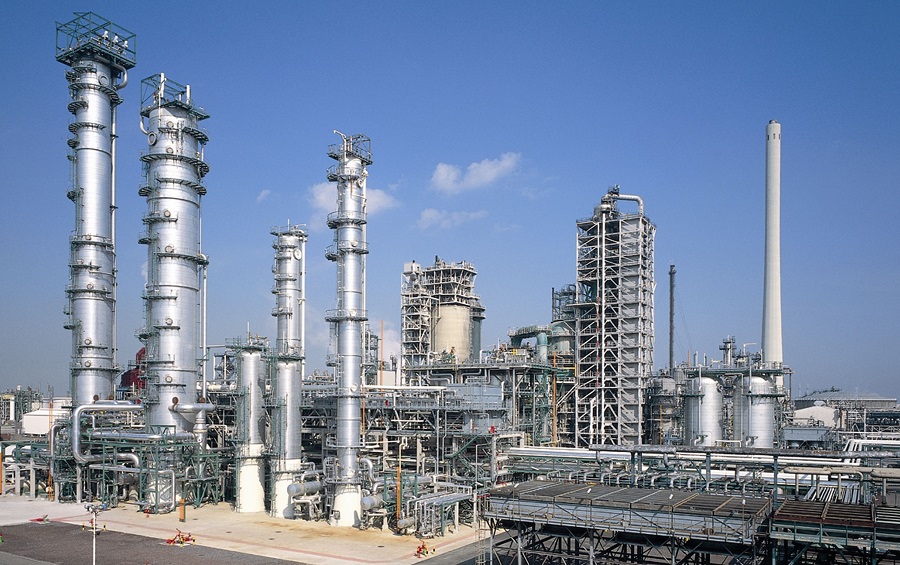On September 28, 2020, President Muhammadu Buhari presented the reworked Petroleum Industry Bill (PIB) to the National Assembly for consideration and passage, after over a decade of delays in the legislative review process.
The Bill, which is intended as a complete overhaul of the Nigerian oil and gas sector, seeks to introduce pertinent changes to governance, administrative, regulatory and fiscal framework of the Nigerian oil and gas industry, in order to ensure an increased level of transparency and accountability, strengthen the governing institutions, and attract investment capital, among other objectives.
It also seeks to safeguard the long-term macroeconomic stability of the country, reform the extractive industry’ institutional framework, and provide better clarity for Nigeria and its partners, thereby entrenching a domestic gas to power market, as well as increasing oil and gas production, whilst protecting the environment.
READ: Senate President says PIB will increase Nigeria’s oil revenue
Evolution of Nigeria’s Oil and Gas regulatory framework
The Nigerian oil and gas industry, which is the mainstay of the country’s economy, is still largely governed by the Petroleum Act, and the Petroleum Profit Tax (PPT) Act, enacted in 1969 and 1959 respectively.
Since these laws were ratified, the global oil and gas industry has undergone significant changes, from investment, governance and fiscal perspectives. Although certain obsolete aspects of the Acts were amended, their inadequacies have led to community unrests, increased uncertainty which affects the flow of desired investments into the sector, inefficiencies plaguing the sector, the state-owned oil giant’s (NNPC) budget shortfalls, and so on.
The emergence of the bill is a fallout of the activities of the Oil and Gas Reform Implementation Committee which was inaugurated on April 24, 2000 under the Chairmanship of the then Presidential Adviser on Petroleum and Energy, Rilwan Lukman. The body was charged with the responsibility of making recommendations for an extensive and holistic restructuring of Nigeria’s oil and gas industry.
READ: What banks might do to avoid getting crushed by Oil & Gas Loans
The eventual report that came from the committee formed the basis of the first PIB that was submitted in 2008 as an Executive Bill under the administration of Late President Umaru Musa Yar’Adua.
Since then, the Bill has faced numerous crises and hit several roadblocks as different vested interests try to push their different agendas.
Having gone through several revisions, a new version of the bill was presented to the seventh session of the National Assembly under President Goodluck Jonathan’s administration and subsequently, the legislature under the current administration of President Muhammadu Buhari.
In order to make it more manageable to legislate on, the Bill is structured into 4 major components namely: the Petroleum Industry Governance Bill (PIOB), Petroleum Industry Administration Bill (PIAB), Petroleum Industry Fiscal Bill (PIFB), and Petroleum Host Community Bill (PHCB).
READ: Indigenous oil firm institutes legal action against NCDMB and others
Today, the PIB essentially focuses on the taxation of oil companies, the commercialization of the NNPC, and the creation of community funds for oil-producing communities.
The PIGB, which was passed by the eighth session of the National Assembly, could not get presidential assent and was thereafter returned to the legislature for further revision.
The latest version of the Bill, which is now before the ninth session of the National Assembly for consideration and passage, seeks to replace the Nigeria National Petroleum Commission (NNPC) with NNPC Limited, create separate regulatory agencies for upstream, midstream and downstream operations, as well as reduce the royalty from 10% to 7.5% for offshore fields producing not more than 15,000 barrels per day.
It also increases the benchmark threshold of crude oil price for charging royalty from $35 per barrel to $50 per barrel, and make gas flaring penalties non-tax deductible in order to discourage the practice.
Fighting opposition
The PIB has been rocked by politics and stiff opposition from some stakeholders for over a decade, and even with a revised document, it still faces resistance from various parties.
Opposition from the leaders of host communities, who have kicked against certain provisions of the bill is just as strong as that of International Oil Companies (IOCs), who have also expressed dissatisfaction with some clauses in the proposed legislation.
At a national assembly hearing organised by the Joint Committee on Petroleum Upstream, Downstream and Gas, the Oil Producing Trade Section (OPTS) expressed discontent over some provisions of the proposed law.
During a public hearing organized by the National Assembly, the Chairman of the Oil Producers Trade Section (OPTS), Mike Sangster, representing Total, Chevron, Exxon Mobil and Shell companies, complained that the PIB created an unfavourable environment for future deep-water investments and launching of new projects.
He proposed that to ensure investors were encouraged to finance deep-water projects, the PIB should grant deep-water oil projects a full royalty relief during the first 5 years of production, and remove Hydrocarbon Tax considering that companies would still be subject to Company Income Tax (CIT), etc.
The representatives of the host communities at the public hearing, also objected to some sections of the Bill, claiming that the proposed piece of legislation was designed to further enslave them, and create more confusion in their communities and region as a whole.
They specifically objected to the 2.5% equity holding from oil companies, and insisted on 10% which was part of the initial Bill that was proposed under the administration of late President Umaru Yar’Adua. This is to enable the people to fully participate through the protection of infrastructure and oil installations.
They also rejected the governance structure proposed for the host communities’ funds, denying any meaningful level of community participation, while covertly promoting oil companies’ control and prominence.
They were against the empowering of oil companies to set up the Board of Trustees of the Trust fund, conduct needs assessment, and come up with development plans on behalf of the host communities.
Experts push for prompt passage of the bill
In his analysis of the development, the Director, Centre for Petroleum, Energy Economic and Law at the University of Ibadan, Professor Adeola Adenikinju, said that Nigeria had no justifiable reason not to pass the PIB this year, as it had lingered for too long.
While pointing out that the different stakeholders and groups had the right to pursue their self-interests, he said the pursuit of such should not be allowed to destroy the intentions of the bill.
The Professor said, “The public hearings in both houses are designed to allow stakeholders to present their views on the bill. These views should be carefully considered and those that will improve on the bill should be taken on board. However, the reality is that a law cannot please everyone or all stakeholders, however, it must promote the greater good. It should also improve on the present conditions of the host communities.
“We should not allow the pursuit of what is perceived to be the ‘best’ for us, to destroy the good intentions of the bill.
“The IOCs, while having the right to pursue their self-interests, should all be aware that the passage of the bill is in their long term interests, in that it will provide a stable environment for them to plan their investments. Moreover, the efficiency and greater effectiveness that the reforms embodied in the bill brings to the operations of the energy sector should be of interests to the IOCs also.”
While providing his own insight on the issue, an oil and gas expert, Damola Adegun, said that communities’ concerns about community funds were valid, adding that even the mechanisms for distribution of the funds was not well thought out.
He pointed out that though the Bill might not be perfect, it should not stop the passage of the bill.
Mr Adegun said, “Progress matters; if you do not take any step, there is nothing to learn from, so while it might not be perfect, it should not stop the passage of the Bill because you always have the opportunity to adjust it. I think whatever the downsides, whatever the challenges are it may be better to pass it first, then we can keep updating and adjusting the terms
“Another thing is laws are very difficult to change, so it’s always better for Bills to provide frameworks, while agencies provide guidelines. The agencies and ministries are closer to the industry and can always provide better guidelines that encoding such into law. So that’s one downside I see with the community issue, just provide a framework, set up that 2.5% and then let there be guidelines issued later. Maybe that can help.
“One truth is this, the communities will never agree, they will never say this is the best option, so there will always be doubts for whatever you ask in the community bill.”
On the reservations by the IOCs on some sections of the Bill, Adegun disagreed with their view and said that the piece of legislation made Nigeria more competitive on the fiscal side and even reduced taxes.
He said, “If you tell IOCs to come and take our oil for free and Nigeria will be paying, they will still say that deal is not good and not competitive. The bill makes Nigeria more competitive on the fiscal side; in fact, we are likely to lose more money to the IOCs, they have dropped the taxation. A lot of other things, royalties have been dropped. For the offshore there is no change, in fact there are even bonuses for offshore.
“When I saw a ranking of our competitiveness with this new bill, compared to other countries, we have even improved by 10 to 12 places in ranking when it comes to competitiveness. So don’t be worried, IOCs will complain, even if you give them the oil for free and pay them, they will tell you it’s still not good.
“They are optimized not to agree that it is good. The deep-water act was already enacted early this year before the PIB, the PIB only maintains and improves and even increases the incentives, it doesn’t make it harder on the IOCs, its better. The reason why it’s better is because they want to attract more people into Nigeria because we are losing our position as the foremost destination for investment.”
The delay and crisis of the PIB is primarily due to the pursuit of personal interests of various individuals and groups within and outside the country, far above national interest. The Senate President, Ahmed Lawan, said that PIB is like a demon with people both within and outside the country ready to work against it as they had been doing for the past 14 years.
He, however, declared that the ninth Senate and by extension, the ninth National Assembly, would “defeat the demon” with the current bill before both chambers.





















